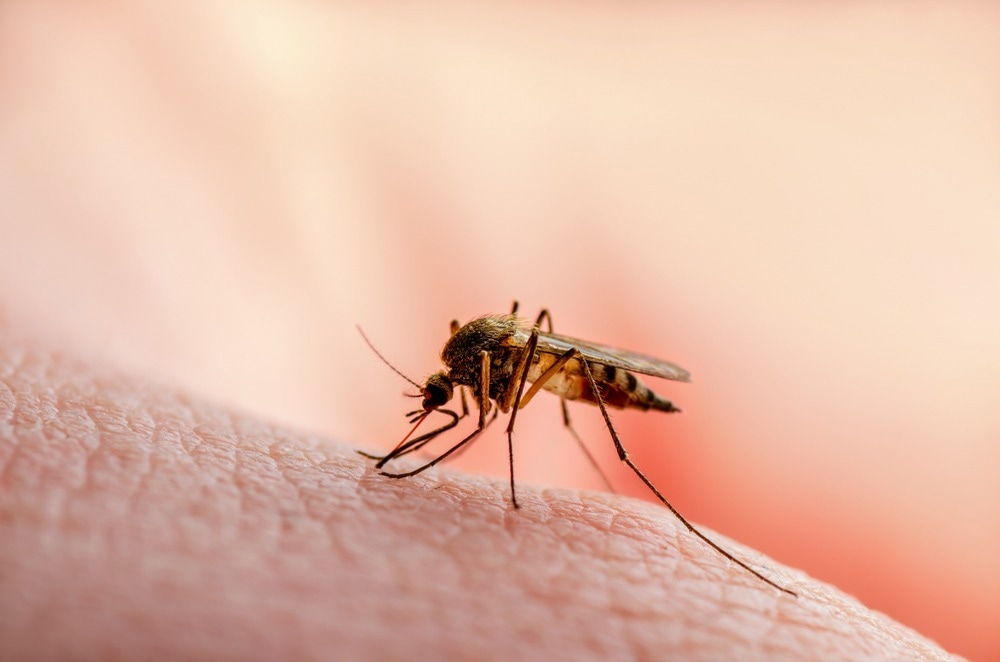A research just lately printed in PLOS Neglected Tropical Diseases has explored the affiliation between the prevalence of pre-existing parasitic ailments and outcomes of coronavirus illness 2019 (COVID-19) on the nationwide degree. The research reveals that nations with a excessive malaria prevalence have a decrease incidence of COVID-19.

Background
The COVID-19 pandemic attributable to extreme acute respiratory syndrome coronavirus 2 (SARS-CoV-2) has triggered unprecedented harm to the worldwide financial system and healthcare system. Within the early part of the pandemic, it was anticipated that low-to-middle-income nations would have the best impression due to poor well being insurance policies and a scarcity of assets and infrastructure.
In distinction to the predictions, a decrease incidence and severity of COVID-19 has been noticed in socioeconomically disadvantaged nations like sub-Saharan Africa in comparison with that in economically wealthy and developed nations just like the USA and Europe.
A number of hypotheses have been put ahead to clarify this noticeable distinction in COVID-19 outcomes between nations. A number of causative components have been recognized, together with socio-demographic and geographical components, the prevalence of comorbidities, weather conditions, in addition to the potential for underreporting.
Within the present research, scientists have investigated whether or not the prevalence of uncared for tropical ailments can impression the outcomes of COVID-19. Uncared for tropical ailments primarily embrace parasite infections which might be extremely prevalent in socioeconomically disadvantaged nations.
Research design
The scientists performed an ecological research utilizing publicly accessible country-level knowledge to determine the affiliation between parasitic illness prevalence and COVID-19 incidence charges. They thought-about numerous demographic, socioeconomic, and geographic confounding components and adjusted their results on the attainable affiliation.
Of assorted human-infecting parasites, solely Schistosoma spp., soil-transmitted helminthiases, and Plasmodium spp. have been thought-about within the research.
Given the severity of COVID-19 in individuals with pre-existing well being situations, the prevalence and mortality charges of non-communicable ailments have been thought-about predictive components.
Given the severity of COVID-19 in older individuals, the proportion of the inhabitants aged 65 years and above was thought-about a demographic issue.
Relating to socioeconomic components, country-level healthcare infrastructure, earnings, and general lifestyle have been thought-about. Furthermore, the country-level inhabitants density, inhabitants density in city areas, and common floor temperature have been thought-about geographic components.
Necessary observations
The epidemiological knowledge obtained from 202 nations have been analyzed within the research. Amongst these nations, the best incidence of COVID-19 was noticed within the USA, adopted by Europe, Southeast Asia, East Mediterranean, Western Pacific, and Africa.
A heterogeneous distribution of parasitic ailments was additionally noticed throughout the analyzed nations. Malaria had an endemic standing principally in nations of Africa and the Western Pacific. Apparently, these nations have been the least affected by the pandemic.
The evaluation of the connection between one unbiased and one dependent variable revealed that nations with a excessive prevalence of parasitic ailments have a decrease incidence of COVID-19.
Contemplating confounding components, nations with excessive tuberculosis prevalence, excessive floor temperature, or later onset of COVID-19 skilled a decrease incidence of COVID-19. Furthermore, a constructive affiliation was noticed between COVID-19 incidence and the proportion of aged individuals in a inhabitants, country-level earnings, healthcare infrastructure, proportion of individuals residing in city areas, non-communicable disease-related mortality charges, instructional degree, and COVID-19 vaccine protection.
Contemplating parasitic ailments, a considerably decrease incidence of COVID-19 was noticed in nations with a excessive malaria prevalence. This affiliation remained vital even after adjusting for confounding variables, country-level earnings, the proportion of aged individuals, and variations in COVID-19 period within the multivariable evaluation that included knowledge from 165 nations.
Research significance
The research establishes that the nationwide malaria prevalence is a crucial predictor of COVID-19 incidence price. The research additionally finds a detrimental however non-significant affiliation between the prevalence of schistosomiasis and soil-transmitted helminthiases and COVID-19 incidence. As talked about by the scientists, additional research are required to determine the impression of those different uncared for tropical ailments.
General, the research highlights the necessity for extra analysis on the sub-national and particular person ranges to discover COVID-19 outcomes, notably in malaria-endemic nations.






